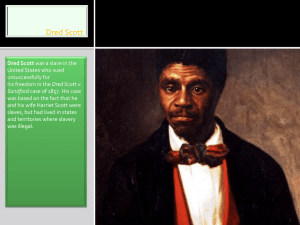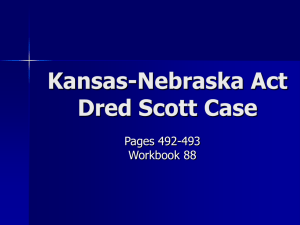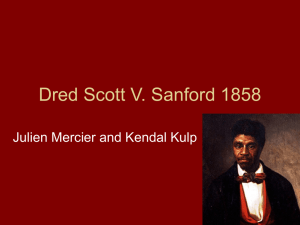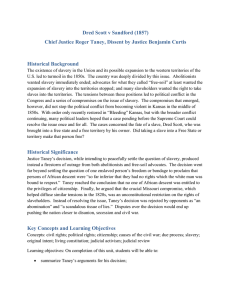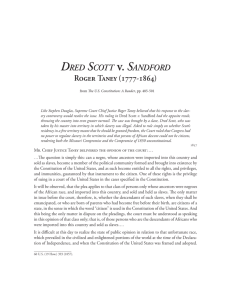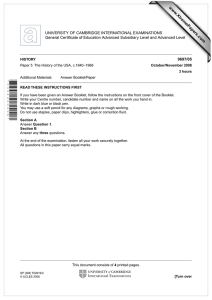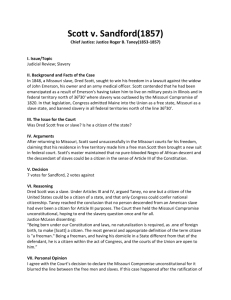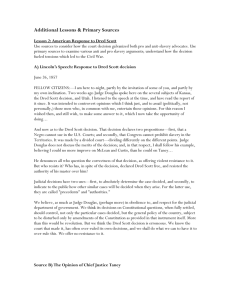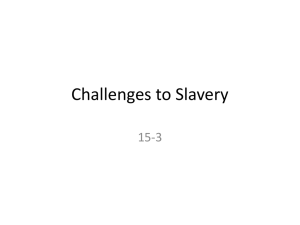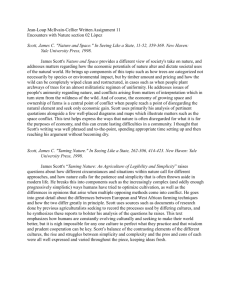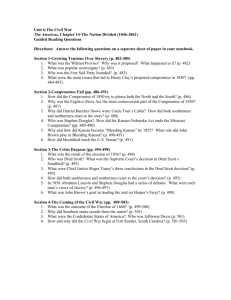Dred Scott
advertisement
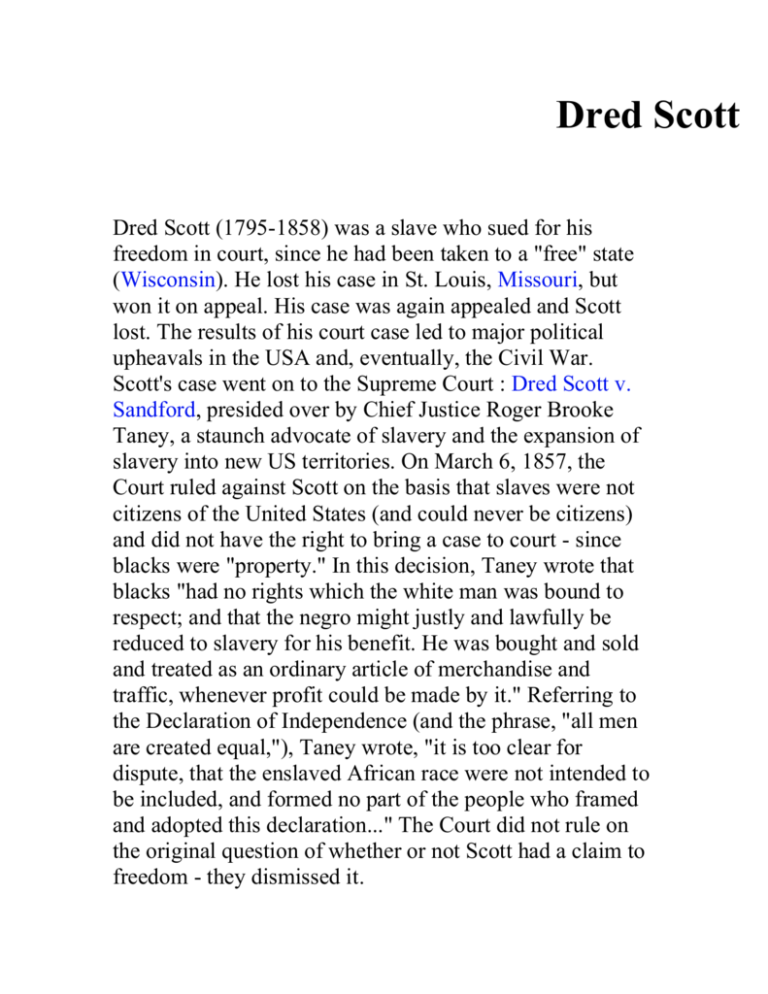
Dred Scott Dred Scott (1795-1858) was a slave who sued for his freedom in court, since he had been taken to a "free" state (Wisconsin). He lost his case in St. Louis, Missouri, but won it on appeal. His case was again appealed and Scott lost. The results of his court case led to major political upheavals in the USA and, eventually, the Civil War. Scott's case went on to the Supreme Court : Dred Scott v. Sandford, presided over by Chief Justice Roger Brooke Taney, a staunch advocate of slavery and the expansion of slavery into new US territories. On March 6, 1857, the Court ruled against Scott on the basis that slaves were not citizens of the United States (and could never be citizens) and did not have the right to bring a case to court - since blacks were "property." In this decision, Taney wrote that blacks "had no rights which the white man was bound to respect; and that the negro might justly and lawfully be reduced to slavery for his benefit. He was bought and sold and treated as an ordinary article of merchandise and traffic, whenever profit could be made by it." Referring to the Declaration of Independence (and the phrase, "all men are created equal,"), Taney wrote, "it is too clear for dispute, that the enslaved African race were not intended to be included, and formed no part of the people who framed and adopted this declaration..." The Court did not rule on the original question of whether or not Scott had a claim to freedom - they dismissed it. Associate Justice Benjamin R. Curtis (from Massachusetts), disagreed so strongly with Taney's decision that he left the Supreme Court in protest. Shortly after the Supreme Court's inhuman and shameful decision, Scott was sold and then freed by his "owner." Scott died from tuberculosis about a year later. The decision in the Scott case imperiled all fugitive slaves and led to the nullification of the Missouri Compromise of 1820. This nullification allowed the expansion of slavery into formerly free territories and strengthened the growing movement against slavery. The Dred Scott court case was a pivotal event in American history, eventually leading to the election of Abraham Lincoln as President of the US, and to the Civil War (1861-1865), during which over 300,000 Americans from both the North and the South were killed. The questions brought up in the Dred Scott case were not settled until the passage of the 13th Amendment to the Constitution (freeing slaves in 1865) and the 14th Amendment (making former slaves citizens of the United States in 1868).
